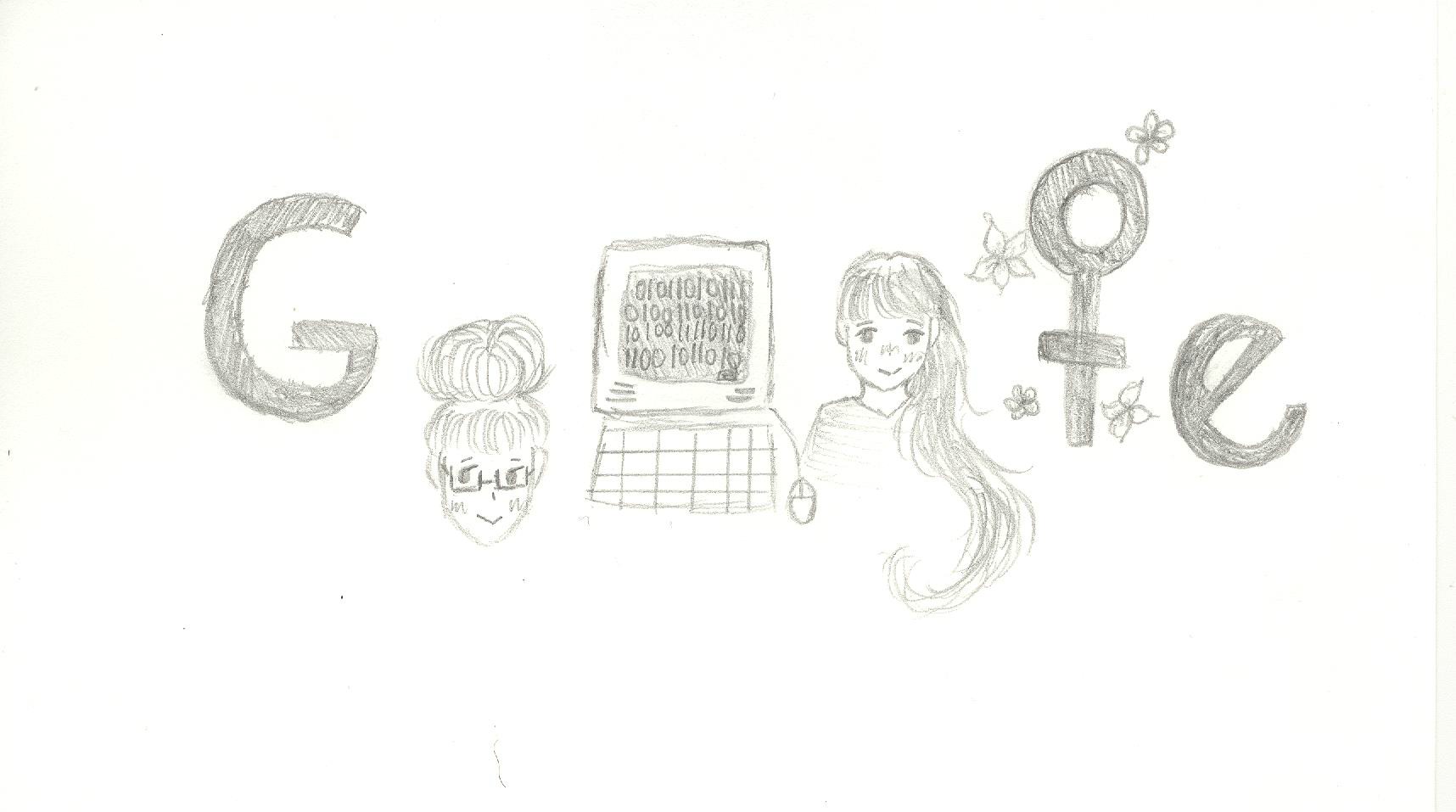A google employee’s misogynistic memo sparks furious backlash
MVHS students share their thoughts on this incident that has hit close to home
by Sreya Kumar
A viral 10 page document feverishly circulated around the Google headquarters. The author, James Damore implied that women were inferior to men in his memo titled “Google’s Ideological Echo Chamber”. Damore holds a PhD from Harvard and graduated in the top 3% of his class in the University of Illinois.
On Aug. 7 2017, he was fired.
This issue travelled 9.5 miles away to the ears of sophomore Janani Pandurangan. Finding the content of the memo completely ridiculous, she remains confident in achieving her goal to become an engineer. As she continues her fight against sexism in the tech industry, she admits that she won’t be pushed over by the negativity in the tech industry, and will strive to be successful.


“If I was a [female google employee], I would have said so many things to [Damore],” Pandurangan said. “He is on this earth because of a woman, and [he] is saying that women are inferior. I want to see him say that to his mother.”
The writing states that a woman focuses on “feelings and aesthetics rather than ideas”. The author voiced, under his assumption, that more men like to code more as they are more interested in technological aspects, while women often like working and dealing with people. Following this point, he stated that women struggle to speak up for themselves, lead and ask for pay raises.
Statistics today show that the number of women in the tech industry has been declining since 2005. According to a report by the National Center for Women & Information Technology’s workforce alliance (NCWIT), in 2005 women made up approximately 28 percent of the tech industry. In 2015, that number dropped to 25 percent.
The same report states that 49% of the women who quit either begin their own startup company, work in a government job or a non profit organization. The remaining 51% however, either take on a job that is not tech related or stop working.
Despite these statistics, architect Vasuki Ashok, who works at Oracle, remains hopeful about the situation. She believes that women will continue to fight for their rightful place in the tech industry. She also suggests that working in a place with less negative energy may be a solution to aspiring female engineers.


“There are people with the attitude that only men can do the work and women can’t,” Ashok said. “In some places, they make women to be less than men. So we need to find the right fit for us and prove to the industry and people that we are competent.”
Calling herself tech-crazy, sophomore Manogna Rajanala finds the notion of the memo to be absurd. She believes that hate against women in the tech world should be diminished as people should be able to pursue what they want.
“You can't just say that men are able to do programming in a way that women can't because that's completely wrong,” Rajanala said.
Rajanla herself, tutors children on coding and enjoys helping them learn. She also remains firm in her belief that people should be allowed to explore many career paths and routes till they find their true passion.
“When [I have a career in technology], the hate against women is going to be completely different,” Rajanala said. “Technology is changing rapidly and there is a lot of clubs now [encouraging] women in technology.”
Clubs and after school activities encouraging girls to code have been on the rise. One of the more famous organizations is called Girls Who Code. Its main aim is to charter an interest in computer science within girls.
Senior Neha Jagathesan is part of this organization and she feels more exposed to the world of coding after joining summer programs conducted by this group. Jagathesan feels that the safe environment in the club and working with girls like her has helped her in broadening her interest in the tech world.
However, she is a minority in her MVHS AP Computer Science class, being one of only ten girls. Jagathesan described her experiences in school slightly different.
“I would get back tests and hear guys whisper, ‘Oh wow even she got higher than me’, just because I am a girl”, Jagathesan said. “It was a hard environment to work in some times, but I enjoyed the class.”
Google’s CEO, Sundar Pichai, has addressed the issue and publicly stated that even though freedom of speech is accepted in the company, the memo had taken it a step too far. He wrote, “the memo has clearly impacted our co-workers, some of whom are hurting and feel judged based on their gender. Our co-workers shouldn’t have to worry that each time they open their mouths to speak in a meeting.”
This document has created a lot of backlash, causing more women to speak out for themselves and their place in the tech industry. Pandurangan remains steadfast as she notes that being a woman in the tech industry is no easy task.
“Women should not be what men [want] because it just tells [men] that we are succumbing to the pressure that men are giving,” Pandurangan said. “Women should get into jobs that they really like... If men can do anything why can't women?”